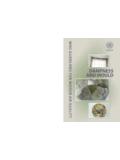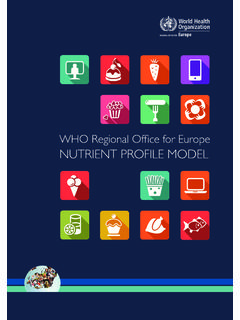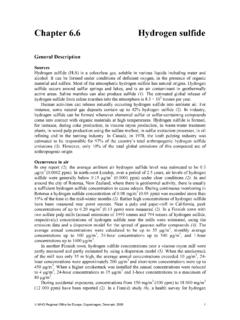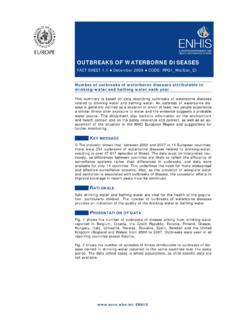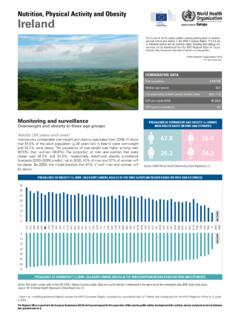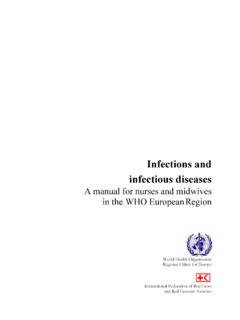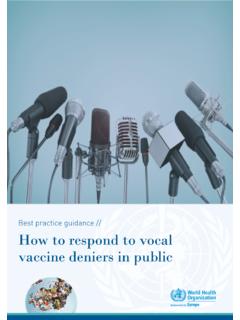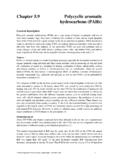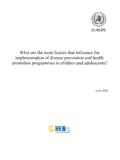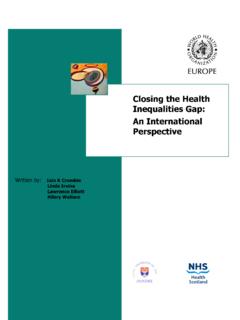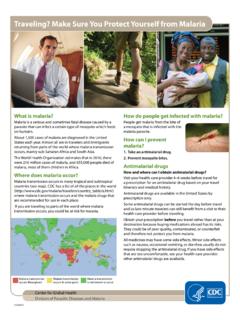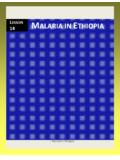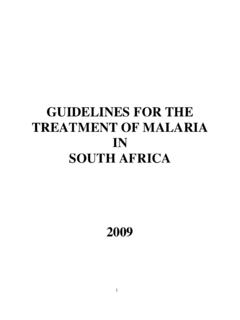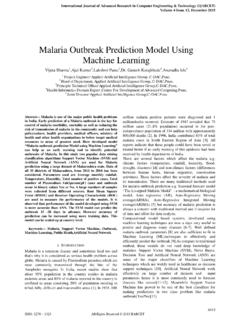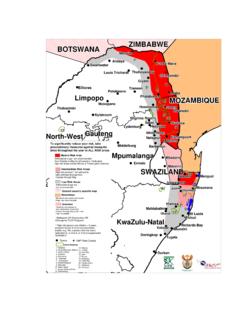Transcription of Mosquitoes of the genus Anopheles in countries of …
1 Within the framework of the new WHO regional strategy aimed at malaria elimination, special attention is given to operational research. In order to update scienti c knowledge on malaria , the WHO Regional O ce for Europe has initiated a regional programme on operational research related to malaria entomology and vector control, which is being carried out successfully with the assistance of research institutions and partners in affected countries of Middle Asia and South Mosquitoes of the genus Caucasus. The objectives of the research are closely tied to the particular situation and problems identi ed within a single country or a group of neighbouring countries .
2 The identi cation and geographical distribution of Anopheles Mosquitoes , the Anopheles in countries of prevalence of sibling species and their role in malaria transmission, taxonomy, biology and ecology of malaria vectors are of particular interest in the Region. the WHO European Region The results of the research presented in this paper conducted over the past ve years in countries having faced a recent resurgence of malaria in the WHO European having faced a recent Region, will help national health authorities to re-examine the current vector control strategies, taking into account the updated knowledge of existing and potential resurgence of malaria malaria vectors.
3 The threat of the re-establishment of malaria transmission in the Region should not be downgraded, despite the substantial progress achieved. In this connection, further research on the taxonomy, biology, ecology, behaviour and genetics of Mosquitoes of the Anopheles genus will lead to a better understanding of the nature of malaria vectors and their role in transmission in the WHO European Region, and to providing advice on the ways to best address the problem. Regional research project, 2003 2007. Carrying out this comprehensive research agenda is a major step towards the day when malaria in the WHO European Region is completely eliminated.
4 World Health Organization Regional O ce for Europe Scher gsvej 8. DK-2100 Copenhagen , Denmark Tel.: +45 39 17 17 17. Fax: +45 39 17 18 18. E-mail: Web site: E. Regional research project, 2003 2007 i Mosquitoes of the genus Anopheles in countries of the WHO European Region having faced a recent resurgence of malaria Regional research project, 2003 2007. ii Mosquitoes of the genus Anopheles in countries of the WHO European Region having faced a recent resurgence of malaria Keywords Anopheles genetics CLASSIFICATION. malaria transmission prevention and control EUROPE.
5 E92010. Address requests about publications of the WHO Regional Office for Europe to: Publications WHO Regional Office for Europe Scherfigsvej 8. DK-2100 Copenhagen , Denmark Alternatively, complete an online request form for documentation, health information, or for permission to quote or translate, on the WHO/Europe web site at World Health Organization 2008. All rights reserved. The Regional Office for Europe of the World Health Organization welcomes requests for permission to reproduce or translate its publications, in part or in full. The designations employed and the presentation of the material in this publication do not imply the expres- sion of any opinion whatsoever on the part of the World Health Organization concerning the legal status of any country, territory, city or area or of its authorities, or concerning the delimitation of its frontiers or boundaries.
6 Where the designation country or area appears in the headings of tables, it covers countries , territories, cities, or areas. Dotted lines on maps represent approximate border lines for which there may not yet be full agreement. The mention of specific companies or of certain manufacturers' products does not imply that they are en- dorsed or recommended by the World Health Organization in preference to others of a similar nature that are not mentioned. Errors and omissions excepted, the names of proprietary products are distinguished by initial capital letters.
7 The World Health Organization does not warrant that the information contained in this publication is complete and correct and shall not be liable for any damages incurred as a result of its use. The views ex- pressed by authors or editors do not necessarily represent the decisions or the stated policy of the World Health Organization. Regional research project, 2003 2007 iii List of contents Acknowledgements iv Introduction v 1. Problems related to research on the taxonomy of malaria vectors in the middle Asian and south Caucasian countries 1. 2. Materials and methods 2.
8 3. Results 5. malaria vectors in middle Asia and Kazakhstan 5. Analysis of malaria vectors of the An. maculipennis complex in southern Caucasia 13. Cytological and molecular genetic analysis of malaria vectors in the Russian Federation 17. 4. Conclusions and recommendations 20. Annexes 21. iv Mosquitoes of the genus Anopheles in countries of the WHO European Region having faced a recent resurgence of malaria Acknowledgements We would like to express our appreciation of the generous technical and financial support provided by the World Health Organization Regional Office for Europe and the United States Agency for Interna- tional Development without which this project would not have been possible.
9 We would equally like to extend our special thanks to the national health authorities of Armenia, Az- erbaijan, Georgia, Kazakhstan, Kyrgyzstan, Tajikistan and Uzbekistan, and to WHO staff in these coun- tries. Since it is impossible to mention them all individually, we would like to thank all those who have been committed to and involved in the implementation of this project over the past five years. The studies were also supported in part by the Russian Fund for Basic Research and the Russian Acad- emy of Sciences. Contributors: Dr Mikhail Gordeev, Professor, Moscow State Regional University Dr Andrei Zvantsov, Temporary adviser, WHO Regional Office for Europe Dr Irina Goriacheva, Vavilov Institute of General Genetics, Russian Academy of Sciences Dr Elena Shaikevich, Vavilov Institute of General Genetics, Russian Academy of Sciences Ms Oksana Bezzhonova, Post-graduate student, Lomonosov Moscow State University Edited by Dr Mikhail Ejov, malaria Programme, WHO Regional Office for Europe Regional research project, 2003 2007 v Introduction From 1999 2007.
10 The reported number of malaria cases within the WHO European Region declined from 90 712 to 1226, and it is likely that only 400 500 autochthonous cases will be reported in the Region in 2008. At present, locally acquired malaria continue to pose a challenge in 6 out of the 53. Member States of the European Region, namely Azerbaijan, Georgia, Kyrgyzstan, Tajikistan, Turkey and Uzbekistan. The incidence of malaria in all affected countries has been brought down to such levels that interruption of transmission of P. falciparum and P. vivax malaria has become a feasible objective.
